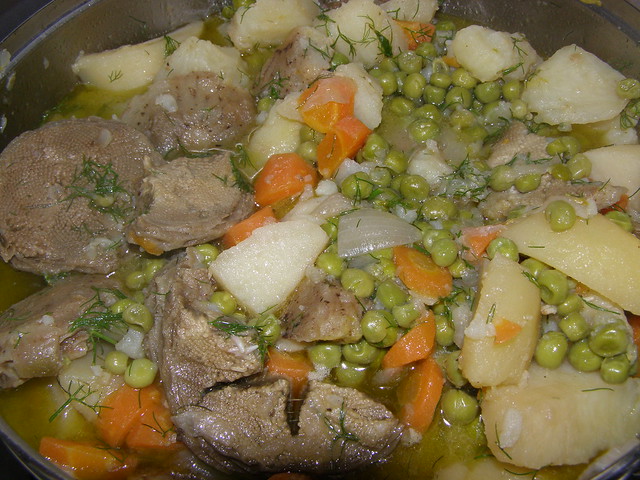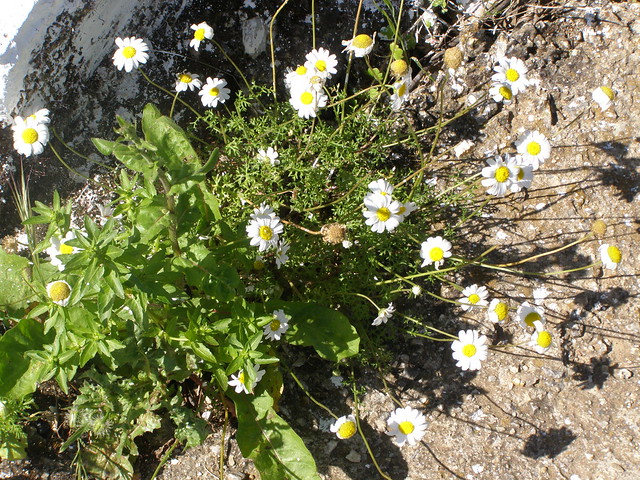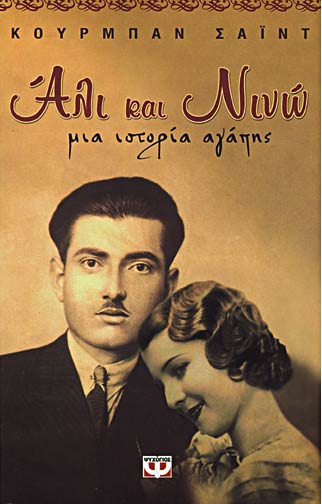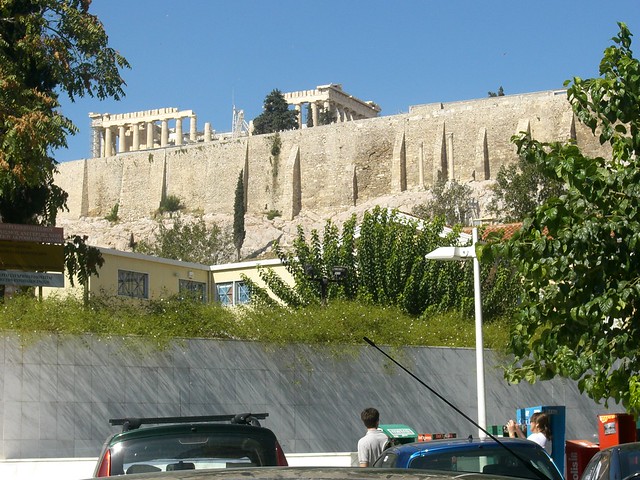 You never know who you will meet on the internet these days because the internet is so all-encompassing. Remember my review of Sun, Seasons and Souvlaki: A Glimpse of Modern Greece (Athens: Hadjinikoli, 1974)? Betty Blair, the author of that book came across my blog post and gave me more information about how she conceived the idea for it:
You never know who you will meet on the internet these days because the internet is so all-encompassing. Remember my review of Sun, Seasons and Souvlaki: A Glimpse of Modern Greece (Athens: Hadjinikoli, 1974)? Betty Blair, the author of that book came across my blog post and gave me more information about how she conceived the idea for it:"Back in the 1970s, it was very hard to find any books about contemporary Greece. So many books were available in English related to "the glory that was" - telling about the "Golden Age" of Pericles and period when the Acropolis was built- 2000 years earlier. But my idea was to encourage foreigners to look around and appreciate the Greece of contemporary life. And that's where I got the idea to create the book about modern Greece. As expressed in the title - it was a "glimpse," it was not intended to be a deep analysis. It was written to encourage tourists and foreigners to be open and curious and dig further to learn and love the country themselves... Also, it was written under the influence of one of Greece's most distinguished political scientists Dr. Pantazis Terlexis. The book was quite successful and went through three reprints between 1974 and 1976. I left the country in 1977 (after living in Athens six years)."
 I was thrilled to be in touch with Betty, who had direct experiences of Greece in turmoil in the recent past. She was also in Greece in the same year that I visited the country for the first time. Betty and I were simply at a different point in our lives: I was an eight-year-old child holidaying in Greece with her parents, while Betty was a university graduate on a long-term working holiday. Sun, Seasons and Souvlaki was Betty's first book. Her second book was also about Greece, entitled Color it Greek, essentially a children's coloring book for in four languages - Greek, English, French and German, again, with an emphasis on contemporary Greek life. Since then, she has edited Azerbaijan International magazine http://AZER.com and been involved in publishing another eight books on other topics.
I was thrilled to be in touch with Betty, who had direct experiences of Greece in turmoil in the recent past. She was also in Greece in the same year that I visited the country for the first time. Betty and I were simply at a different point in our lives: I was an eight-year-old child holidaying in Greece with her parents, while Betty was a university graduate on a long-term working holiday. Sun, Seasons and Souvlaki was Betty's first book. Her second book was also about Greece, entitled Color it Greek, essentially a children's coloring book for in four languages - Greek, English, French and German, again, with an emphasis on contemporary Greek life. Since then, she has edited Azerbaijan International magazine http://AZER.com and been involved in publishing another eight books on other topics.After initial email contact with Betty, I was dying to ask her some questions about the Greece she remembered nearly four decades ago: what brought her here? what kept her here for so long? has Greece changed in her mind? does she come back to Greece for a holiday? Betty kindly obliged to divulge the answers, and our newly-formed friendship was forged.
What brought you to Greece in the first place?
Old story. The stuff of ancient dramas. Boy meets girl. Girl follows boy to exotic country. The rest is history.
You lived in Greece for six years (1971-1977). While in Athens, you wrote your first book: Sun, Seasons, Souvlaki: A Glimpse of Modern Greece. That’s nearly 40 years ago.
What is time? I felt like a kid when I first came to Greece. I still feel like a kid now – years later. Greece was a land of adventure for me - so much to see and explore and learn. So full of passion and intensity. I can’t believe so much time has passed since then. It seems so strange to me to consider some of the entries and sketches in my book as history – as “the way things were”. But, of course, you’re right. The mid-1970s were some of the most prosperous days for Greece. Tourism was booming.
Tell me more about your little book Sun, Seasons, and Souvlaki. Why did you write it?
The best books, they say, are the ones that you as a writer would like to read. I got so tired of reading books about “the glory that was Greece”! I wanted something contemporary. I wanted to understand the color, the texture and nuance of life that was going on around me. Back in the mid-1970s, I don’t remember a single book in English about Greece that didn’t focus on the Acropolis, Pericles, the "Golden Age". I wanted something about everyday life. So I decided to write such a book myself. I had been in Greece for several years and could get around quite well with the language. It took me about a year to try to find topics that I thought were typical and representative – not sensational, weird stuff, just everyday things that I was convinced were meaningful to the average Greek.
Even today when I page through the book, I find the sketches and observations amusing. They bring back wonderful memories of Greece. Even though there is humor and liberty and even exaggeration in the depiction of characters, there is a lot of authenticity in the context of the sketches. I tried to make the details in the sketches reflect reality – like the exact number of strings on a bouzouki, or the number of board pieces in backgammon, or the exact wording on signs.
 |
| ΤΟ ΚΑΦΕΝΕΙΟ: You will still see backgammon being played in the 'kafeneio' by all age groups. It is still alive today, having taken over the village square, where people can still be heard arguing politics in it, just like in ancient times. In the latest edition of his book The Greeks, James Pettifer argues that the Greek rhetoric has not changed much since ancient times; the strong argumentative stance of Greek rhetoric is not well understood by the troika, hence the misunderstandings in the relationships between the troika and Greece. |
What was your experience like in Greece?
Well, there were lots of firsts. Let me talk about a few related to food. Greece was the first time I had ever bought produce at a local neighborhood street market. What a wonderful institution! And even today, where I live in Los Angeles, I still try to buy my produce at a farmers’ market. I like the colors, the freshness and I enjoy how the sellers take pride in their produce. We’re so used to agro-businesses these days. It’s wonderful when you can connect with farmers who really feel part of the miracle of growth.
For me, there were a lot of new tastes in Greece - like octopus and squid. It was the first time I had ever seen a baked lamb’s head, eyeballs and all staring up at me on a plate. Greeks tried to convince me that it was a delicacy. I’m still not sure! Snails. Another first. I’ll never forget the first time I went “snail collecting”. It was after a spring rain and people were wandering over a hillside with plastic bags, collecting snails. Me and my friends decided to do the same. We gathered the snails, took them home and put them in a box for a couple of days. I remember asking Why?, and then we cooked them up in a tomato-onion stew. Incredibly delicious! Artichokes were new to me. I still like how the Greeks stew them with carrots and potatoes.
Oh yes, and camomile flowers. Another first. What a delight to go to the hillsides in spring and pop those tiny daisies through your fingers and then spread them out to dry on newspapers for your own supply of camomile tea for the whole year. Wonderful fragrance. I still drink camomile tea.
Camomile is sprouting up all over the place now in the spring.
 |
| Add a teaspoon of bulk-buy yoghurt to a glass of homogenised milk, leave it in a warm dry corner of your kitchen, and the next day (or sooner, depending on how hot it is) you will got a thick creamy smooth yoghurt, with no milky water liquid residue. |
You miss so much local flavor if you don’t. And I was living there. I didn’t consider myself a tourist. So yes, I learned Greek and could get around quite well after a while. Of course, I would never have dared to give a university lecture in Greek – but I managed everyday life. At the time, I remember there were four or five grammar books for the native English speaker. I bought all of them. And then generally tried to “catch as catch can” – using every opportunity to learn. Besides, there are many words in English that are derived from Greek. I remember one summer going through the thick American Heritage Dictionary and putting a dot next to every word that had roots in Greek. I was amazed, there are so many!
Where did you work in Greece those six years?
At first, I taught English at Dina Yannakapoulou’s frontistirio. And I tutored students privately. I would ride the trolleys and buses and teach kids in their own homes. There was a big urge to learn English back then. Most of my students were younger than 10 years old. After a few years, I began teaching at the Middle School at American Community School (ACS) in Ano Halandri. Most of the diplomatic and international business community sent their kids to ACS. There were a lot of military kids, too, from the American naval base.
You mentioned a special course that you had taught about the Acropolis.
 |
| Middle school students sitting on the classroom floor at the
American Community School, Athens, enjoying the
Acropolis Unit
|
 |
| Me and my family holidaying in Greece, 1974, inside the Parthenon |
 |
| Students wearing chitons, 1975 |
 |
| Worksheets from The Acropolis Unit |
Last year, Emily and I met up with each other again in Los Angeles and mused about the fun we had had in Greece years earlier. We concluded that the things we had done in that class would be forbidden today in American classrooms because of the constant pressure for standardized testing. Teachers have to teach to these tests or the school loses funding. It was sad for us to realize that 30-40 years earlier, far away in the land of Greece, we had more freedom in what we could teach than what is possible today.
Did you ever visit Crete?
Yes. It’s a strange story. While living in Greece, I visited many of the islands but never managed to get to Crete. In 1977, I accepted a teaching assignment in Iran. The following October as Library Media specialist, I attended a conference in Frankfurt. I planned to be away from school for only a week. After the conference, I stopped overnight in Athens to say hello to some friends on my way back to Tehran. But then the unthinkable happened: Iran Air went on strike! It would have been possible to take another international carrier to Tehran, but within the country, only Iran Air operated. I was working 17 hours by bus south of Tehran, not a smart move for a single foreign girl when the political situation was becoming more and more volatile.
Well, I stayed in Athens for a few days, thinking that the strike would soon be over. But no. The strike continued. Soon I got worried that I would wear out my welcome staying with my friends so long. What to do especially since I was running out of money? Keep in mind that there were no such things as credit cards back then, or bank transfers via the internet. One carried Travelers’ Checks and I was running out of money in any form. That’s when I decided to stop by the publisher of my book “Sun, Seasons, Souvlaki.” Could she help me out? Sure enough, she did. With $250 in my pocket, and not knowing when the airline strike would end, I took a ferry boat to Crete. Back in those days, one could travel economy class for about the equivalent of $1 per hour. As I recall the voyage was overnight but cost only about $12 or so.
By the time Iran Air got back into operation, nearly a month had passed since I had left school. I began to sense that life was starting to become quite unpredictable in Iran. Little did I know that this chapter of my life would come to an abrupt end and we would soon be evacuated.
What was it like in Iran back in the 1970s?
The school where I taught was located in the remote mountains of southern Iran, at a copper mine — Sar Cheshmeh. This was the second year of the school’s existence (Kindergarten through Grade 8). Classes were small: most had fewer than 10 students. The children came from many countries — Scotland, England, South Africa, Chile, Philippines. Their dads were helping to set up the copper mine. I might add that the mine seems to be quite productive today. It’s considered to be the second largest copper deposit in the world.
So many things were exactly opposite to what my life had been in Athens. What a stark contrast. A few months earlier, I had been driving around cosmopolitan Athens in heavy traffic in a Mini Morris. In Iran, we rode “dirt bikes”— those Yamaha motorcycles with the nubby tires. On weekends, the teachers would head out on the barren dusty roads to villages. I had never ridden a motorcycle in my life. In Sar Cheshmeh, skies were blue. Somehow, I’ve always
had difficulty thinking there is trouble in the world when skies are so
bright and clear. Bright stars — like brilliant diamonds — filled the
vast dark sky at night. I had never seen such a vast Milky Way —
zillions of stars.
Although Betty had never ridden a dirt bike before, it
became her only transportation for 15 months while she was in Iran. On weekends, she would get together with other teachers and head up into the
desert mountains to villages. They always wore a helmet and the bikes were heavy. When Betty was evacuated, she was one of the lucky few who got to sell her
bike for $500 - half what she had paid to buy it. At Christmas, all the couples left and not a single
woman got back into the country. The men flew to Pakistan and took
buses back in; their wives ever saw Iran again.
But those years were difficult in Iran, weren’t they?
You’re right. The oppressiveness of the Shah’s regime soon led to protests in Tehran. Soon unrest started to affect the copper mine as well. We foreigners were evacuated two days before the Shah left the country in January 1979. We left on January 14th; the Shah left, January 16th. And Ayatollah Khomeini arrived a few weeks later. Iran has never been the same. Back in the States, it was a very unsettling time for me. Being evacuated had been like death to me. I liked Iran. Leaving must have been incredibly painful for those who had to leave their Homeland and who have never been able to return.

Betty Blair, 1976, standing outside a periptero (kiosk) at the Corinth Canal, proudly showing off her colouring-book being sold. The Corinth Canal is now no longer touristy; since the building of a road over the isthmus, the canal lost all its tourist value. Note the kiosk's advertising: English, international and highly European.
What did you do since leaving Greece and Iran?
More travel! Lots of travel to remote locations in South American jungles with linguists who were studying tribal languages. Then graduate study at UCLA in folklore after I realized that folklore was not just about folk tales – but was really the deep study of how beliefs are transmitted through history and how these beliefs were spread geographically. Actually, it was really what my first book was about – studying traditions and practices in Greece.
Yes, I was the Founding Editor of Azerbaijan International magazine, which we established in 1993. Next year marks 20 years that we’ve been publishing this magazine. We have one of the world’s largest websites in the world about Azerbaijan, http://AZER.com. The website archives the articles from the magazine and mostly focuses on cultural topics – literature, music, history, etc. Lately, we have done a lot of research about Azerbaijan’s most famous novel Ali and Nino, which has been published in more than 30 languages including Greek.
Would you say that your early days in Greece influenced your present work?
I think yes. Greeks were always so generous and hospitable. And they were quite impressed when I would speak with them. "She’s one of us," they would say. They were so open to share their traditions and explain things to me. And I think the confidence they gave me – to dare to talk with strangers and to try to learn about new people and new cultures – originated in Greece.
You returned to Greece in July 2011. What were your impressions after being away since 1977?
Frankly speaking, returning to Greece was a disappointing experience. I had lived in Greece for six years when it was booming! The weakened economy has affected everything. But so many things have changed since then. Even the airport was located far away from where I remembered it! Hotels were very expensive. I can remember when you could get a room for about $10 on the islands. Athens used to be so crowded with tourists primarily from Europe. But this past summer, most tourists seemed to be American and Chinese. Where were the Germans and the French? Europeans seem to be heading to Turkey, which is much less expensive for tourists.
Although the view of Acropolis is not obscured, it's lost that old-time glamour...
And I was so pleased that the buildings in the city have remained relatively low – no high rise buildings – which are so characteristic of metropolitan centers today. I was so glad that views of the Acropolis have not been blocked by skyscrapers. But the day that my husband and I climbed the hill to see the Acropolis, we arrived only to be told that this ancient monument was closed. How could the Acropolis be closed?! There was a strike taking place in Athens. We were so disappointed. We had come all the way to Greece , expressly to see the Acropolis.
We left in complete dismay. But at the same time, it was “deja-vu” all over again for me because back in 1973, I had had a similar experience. I had arrived at the entrance of the Acropolis only to be told that curfew had been announced for 4pm for the entire city and everybody had to return back home by then. This was a crackdown by the government in response to an uprising by students at Athens Polytechnic Institute - the day the tanks rolled in. I remember heading down the hill from the Acropolis and walking home the five miles - joining hundreds of people in the streets. The public transportation was not working .
But evidence of economic decline was everywhere. Talented people were doing jobs far beneath their capability. You could see that people were struggling. So many stores were shuttered and empty on the main streets in the most prestigious parts of town. The main bookstore on Syntagma Square that had sold Sun, Seasons and Souvlaki and other English-language books had closed down. There were demonstrations in the streets, and gatherings and speeches at Syntagma Square each night. It brought to mind protests and demonstrations in the streets in the 1970s. Actually, it was exciting to see how people were gathering and trying to protest at the conditions. But clearly, the problems are not going to be resolved for a long time and Greece is going to face even darker days. Somehow, we grew up with the belief – perhaps “myth” would be a better word – that life gets better and better. But my visit to Greece made me realize that this is not necessarily so. And if it isn’t true for Greece, it means that it likely isn’t true for many of the rest of us in the world as well.
*** *** ***
Greece is changing in a direction that was once thought impossible. Remembering Greece as she was is of pressing urgency now, even if at times it seems that Greece's future is heading in the direction of her past. But knowing your past makes you wiser, by giving you the chance to plan ahead.
I acknowledge the internet for bringing me together with Betty, thereby forging a new friendship.
I acknowledge the internet for bringing me together with Betty, thereby forging a new friendship.
©All Rights Reserved/Organically cooked. No part of this blog may be reproduced and/or copied by any means without prior consent from Maria Verivaki.









message from Betty herself:
ReplyDeleteThanks for your interest in my books - "Sun, Seasons, Souvlaki: A Glimpse of Modern Greece". How wonderful that years later, somehow, they are somehow still relevant and interesting to readers. Currently, the book with its sketches is not available except at Harvard University Library (according to Worldcat.org)!! I'll organize to get it into eBook format in a few weeks and make it easily available for readers in PDF format.
Also the book: "Color it Greek" in English, Greek, French and German. I'll make that available too - and maybe kids and grandkids - might have fun coloring it.
I'll let Maria know when these two books are formatted so she can announce on her Blog. - Betty Blair, Los Angeles
in reply to interest from a number of readers who want her books on greece to be re-published
Delete